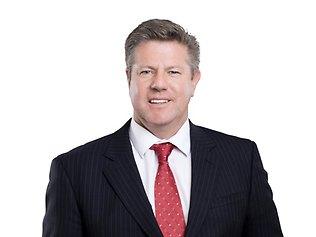Training goes corporate
SKYROCKETING growth in a Melbourne college's enrolments reflects the changing vocational training landscape in Victoria.

AN extraordinary increase in enrolments with a St Kilda-based training company has signalled a change in the guard in Victorian vocational training, as the baton passes from mostly hands-on training at large public colleges to online training dominated by corporations.
Origin HR has cornered the training market in two industry sectors – financial and insurance services and administrative and support services – thanks to exponential growth in enrolments in two of its certificate IV courses.
The growth of 9000 per cent last year in financial services, and 5000 per cent in business administration, made Origin HR easily the biggest private provider in Melbourne’s southern region. It attracted more government-funded enrolments than eight of the state’s 18 TAFEs.
On broad estimates, Origin HR could have qualified for as much as $90 million in state government funding for delivering the two courses last year.
Origin HR’s parent company, international human resources firm Talent2, said it wanted to do likewise in other industry sectors. “We would love to play some part in the National Broadband Network rollout,” said CEO John Rawlinson.
Talent2 describes itself as the Asia Pacific’s leading human resources outsourcing organisation. Mr Rawlinson said its “distribution network” had facilitated the surge in enrolments at Origin HR.
Talent2’s international recruitment, payrole and HR advisory activities gave it a ready client base for its new training division.
“We generally see that skill shortages are going to be the biggest drag on the Asian economy. All our clients are looking for solutions,” Mr Rawlinson said.
When Talent2 bought Origin HR in mid-2010, it was a relatively small provider typical of a “cottage industry” approach to vocational training, he said.
It is one of seven training providers in Talent2’s stable, most of them acquired through its purchase of Sugar International early last year.
Collectively they deliver over 100 qualifications in areas such as mining, community services, business, construction, retail, information technology, transport and logistics, with five of the providers approved for Victorian government funding.
Most have also obtained government funds from other sources such as the federal government’s Productivity Places Program. And with offices in six capitals, Talent2 is also well placed to act when other states’ training markets are opened up.
Globally, Talent2 claims 1700 staff and 46 offices in 19 countries – a meteoric rise since its launch in 2003. Its Sugar subsidiary was established in just 2006, evolving from a one-office professional development outfit for real estate company LJ Hooker in Adelaide.
Mr Rawlinson said Talent2 saw “great potential in the whole corporate vocational education field”.
“We are quite unashamedly a very commercial organisation, as are our customers.”
He said roughly half of Origin HR students were staff of client organisations, studying online. Talent2 had more than tripled its training, assessment and customer service staff to facilitate the increasing enrolments in the last year or so, he said.
Despite advertisements suggesting nominally one-year programs could be completed in a maximum of four months and as little as 40 hours, Mr Rawlinson said these claims were one-off errors, and that 10 months was the typical duration.
He said the group worked hard to maximise course completions and to ensure compliance with training market regulations.
However a source said meteoric enrolment growth raised questions about the capacity of regulatory agencies to manage burgeoning workloads in a multi-speed economy.
The source described Victoria as “the canary in the coal mine” for South Australia and Queensland, which have committed to open training markets, and other states considering similar reforms.
“This growth has to be unsustainable, and will inevitably have people asking questions about the productivity outcomes from this huge investment.”
Leesa Wheelahan, a tertiary education expert with the LH Martin Institute at the University of Melbourne, said the “staggering increase” suggested some providers were “picking low hanging fruit”.
This raised questions about the financial impacts on TAFEs, Dr Wheelahan said. “Private providers can cherry-pick qualifications that are cheap to deliver, without having the same community service obligations TAFE has.”
She was worried that TAFEs could become a “residual provider” restricted to programs private colleges were reluctant to provide, such as expensive technical training and courses for students from disadvantaged backgrounds. And TAFEs could run out of money to provide these services, she said.
The growth also raised broad questions about quality and sustainability, Dr Wheelahan said, citing the ABC Childcare experience.
“A big private provider with economies of scale cornered a large slice of the market, underwritten by government subsidies and cheaper staffing costs. [Then] ABC collapsed and the government had to pick up the tab, and the industry was in chaos.”



